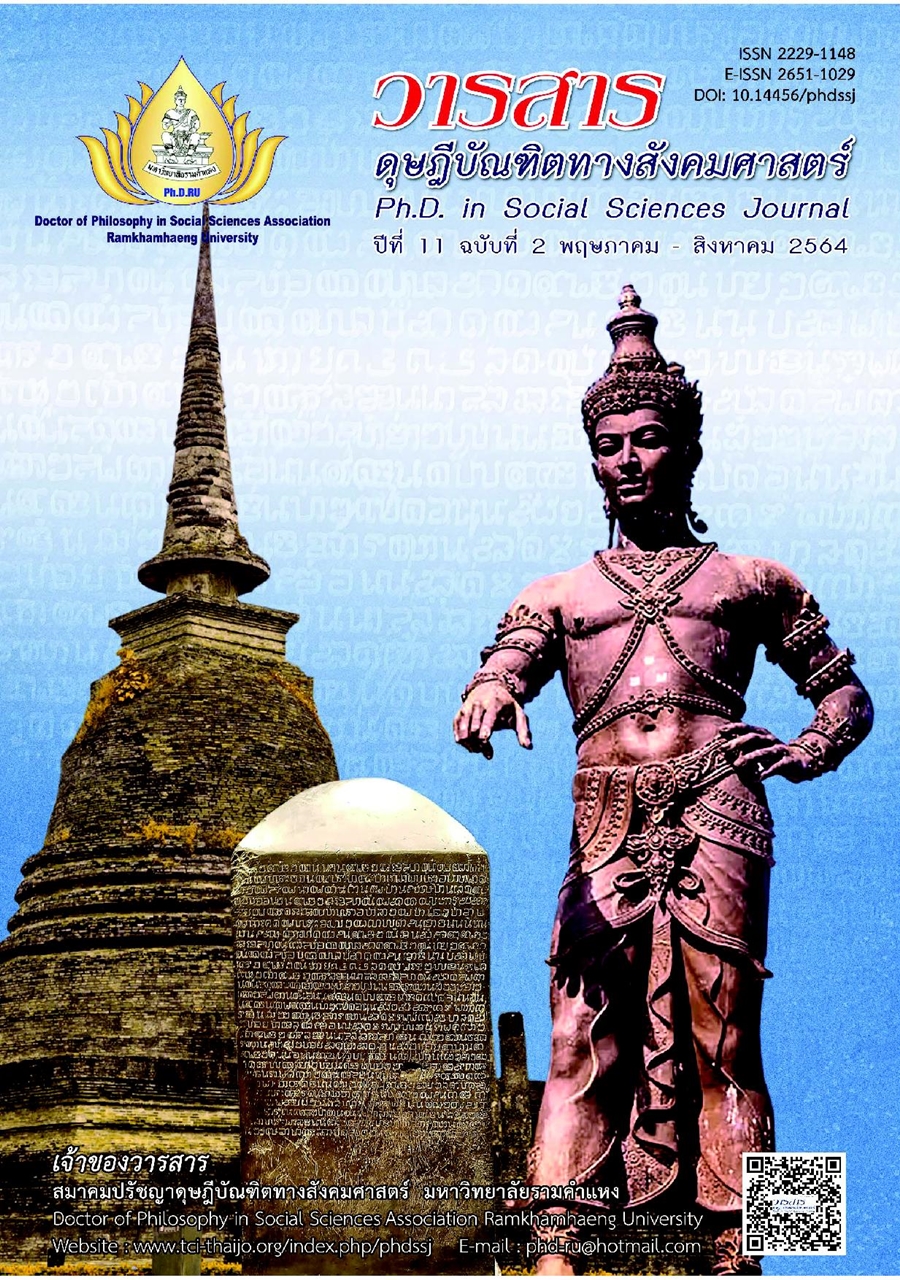The Human Resources Development Affecting the Working Efficiency of the Manufacturing Industrial Sector in the Eastern Region to Support the AEC
Main Article Content
Abstract
This article research has the following objectives: (1) To study personal factors affecting the working efficiency of the manufacturing industrial sector in the Eastern Region to support the AEC; and (2) To study the human resources development affecting the working efficiency of the manufacturing industrial sector in the Eastern Region to support the AEC.
The quantitative research found that: (1) The personal factors affecting the working efficiency revealed that different genders affected the working efficiency differently in both the working morale and the organizational royalty. On the other hand, there was no difference when age, education, working department, monthly earning, working duration, and quality of living in the work place were compared; and (2) The human resources development affecting the working efficiency revealed that the human resources development was at a high level. The working efficiency was at a high level. While the general relationship of the human resources management and the working efficiency was related at a statistical significant level of 0.01 The qualitative research revealed that the organization had to prepare the yearly human resources development plan and financial budgeting plan to enroll personnel who all needed internal improvement within the organization. On the other hand, the working efficiency needed success indicators for the evaluation of the goals set by the organization.
Article Details
Academic articles, research articles, and book reviews in the Ph.D. in Social Sciences Journal are author’s opinions, and not the publisher’s, and is not the responsibility of the Ph.D. in Social Sciences Journal Philosophy Association, Ramkhamhaeng University. (In the case that research is done on human, the researcher has to be trained in Ethics for Doing Research on Human Training and has to produce the evidence of the training).
References
Armstrong, M. (2006). Performance management (3rd ed.). Thomson-Shore.
Becker, S. W., & Neuhauser, D. (1975). The efficient organization. Elsevier.
Chomkaew, N., Puwitthayathorn, T., & Hathaivaseawongsuksri, N. (2017). Relationship between human resource management, organizational engagement, and staff work efficiency at Suratthani Rajabhat University. Journal of Management Sciences, 4(2), 89-116. [In Thai]
Davis, R. C. (1951). The fundamental of job management. Harper & Brother.
Dessler, G. (2006). A framework for human resource management. Pearson.
Mingjaroenporn, S. (2013). Human resource development and organizational performance of the Government Savings Bank. Academic Services Journal, 24(2), 157-167. [in Thai]
Morse, N. C. (1955). Satisfaction in the white collar job. University of Michigan Press.
Noe, R. A., Hollenbeck, J. R., Gerhart, B., & Wright, P. M. (2008). Human resource management: Gaining a competitive advantage (6th ed.). McGraw-Hill.
Pimchangthong, D., & Suthisanonth, A. (2015). Human resources development in learning for business competition in local area toward knowledge society. Suthiparithat Journal, 29(90), 14-30. [in Thai]
Pholnil, S. (2015). Human resource development and organizational climate influencing teamwork: A case study of department of national parks, wildlife and plant conservation. Master’ thesis in public administration, Silpakorn University. [in Thai]
Serirat, S. (2003). Modern marketing management. Theera Film and Side Text. [in Thai]
Werner, J. M., & Desimone, R. L. (2006). Human resource development (4th ed.). South Western Thomson.


